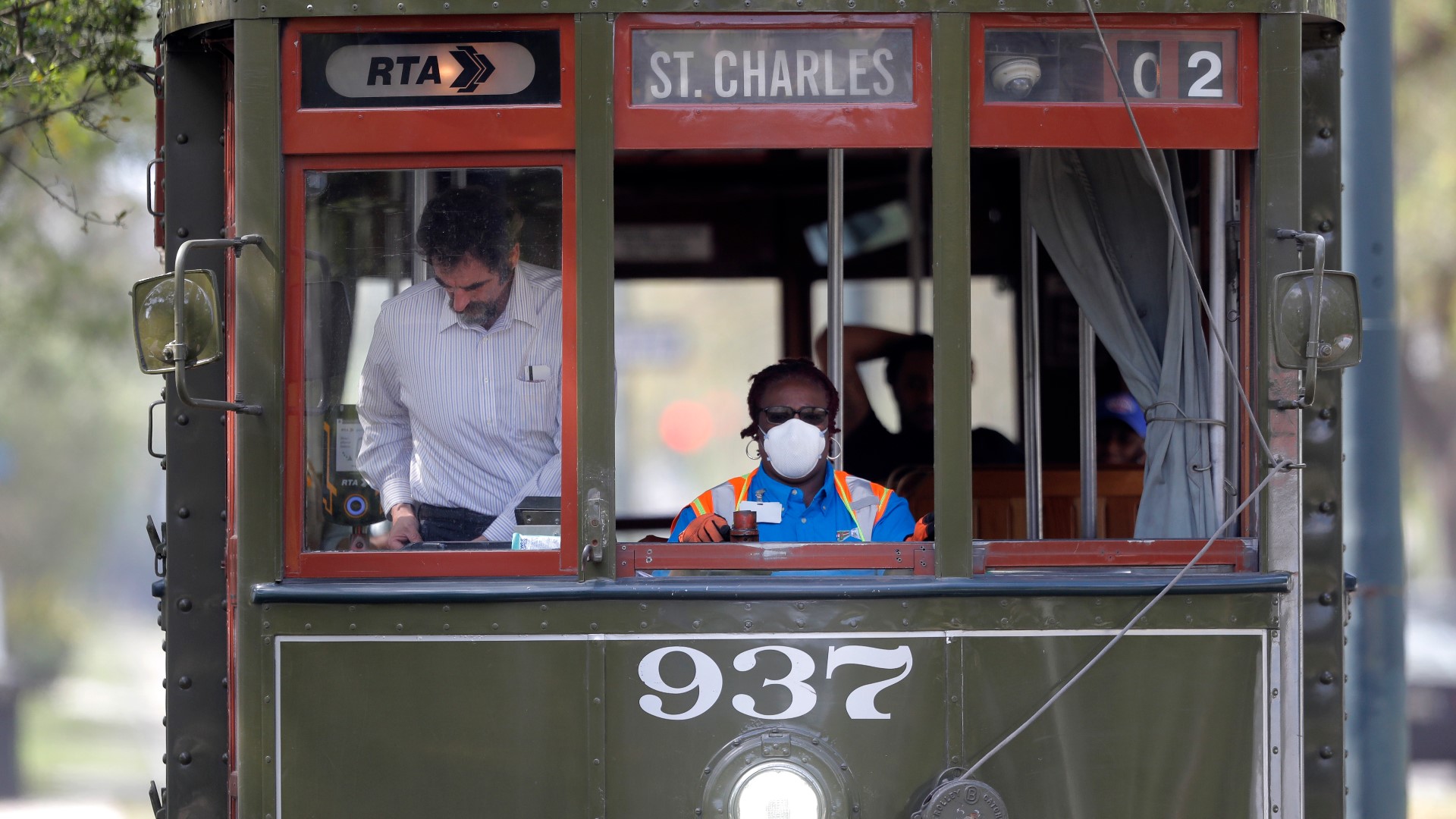After a fun morning at the playground, 7-year-old Oscar Edmunds and his 2-year-old sister Arabella squirmed with excitement.
They were about to ride New Orleans’ historic streetcar down St. Charles Avenue. Arabella loves it, and thanks to changes made in December 2020 to comply with the Americans with Disabilities Act, Oscar can now use wheelchair lifts on two of the six or seven streetcars to join her.
A few passed the stop at South Carrollton Avenue and Sycamore Place on April 30 without an ADA-compliant lift. Finally, one came by with the wheelchair symbol on the front and stopped. Oscar’s father, Christopher, moved his son’s wheelchair into place to board from the grass on the neutral ground.
But the driver told them she wasn’t allowed to deploy the lift.
“The driver says, ‘Oh, I can't let you on here. This is not an ADA stop,’” Edmunds recalled. “And I said, ‘Well, what are you talking about? You have a wheelchair lift?’ She says, ‘Yeah, but this isn't one of the places that wheelchair users can get on or off.’”
Edmunds happens to be an attorney specializing in the Americans with Disabilities Act.
Last year, he sued to stop local Catholic Schools from asking applicants about their disabilities. Now, he's suing the RTA for blocking his son from using the streetcar and refusing to do anything about it when he complained. This time it's personal.
“It's more emotional for me when my family is the plaintiff,” he said. “And so, I tried to avoid it as much as I could. But it made me so angry that I just said, we have to do this.”
It's not the first time the RTA has been sued for violating the ADA.
In 2017, the RTA agreed to a consent decree to make the St. Charles streetcar line "minimally accessible."
The agency announced the improvements with fanfare in December 2020. It held a ribbon-cutting, showed off the new lifts on retrofitted streetcars and announced that 12 stops along the St. Charles route would be paved to accommodate the width of the lifts.
The 12 stops are the inbound and outbound stops at six locations: the Claiborne terminus; at the Riverbend turn from South Carrollton to St. Charles avenues; at Napoleon Avenue; at Louisiana Avenue; at Jackson Avenue; and where the line turns around at Canal Street.
That’s barely 10% of the 114 stops on the St. Charles streetcar line. The closest ADA-compliant stops to Tulane and Loyola universities are more than a mile away.
“They got in trouble. They did the bare minimum, and they decided that they never needed to do anything else again. And that's just wrong,” Edmunds said.
Edmunds alleges in the lawsuit that barring his son and other wheelchair users from boarding at the non-ADA compliant stops is, itself, a violation of the ADA. Edmunds said he measured, and the wheelchair lift extends exactly 7 feet from the edge of the track. He alleges 107 of the 114 stops are wide enough to accommodate the lifts, even if they aren’t fully paved. The code of federal regulations says public transportation agencies must allow passengers to use available lifts unless the lift “cannot be deployed.”
“When we say that a lift cannot be deployed, we mean literally that the mechanism will not work at the location to permit a wheelchair user or other person with a disability to disembark or that the lift will be damaged if it is used there,” the U.S. Department of Transportation states in its guidance for that regulation.
“As long as we are able to get on the wheelchair lift, we should be allowed on the wheelchair lift,” Edmunds said. “It seems pretty simple.”
The RTA declined to comment on pending litigation. The agency also declined to answer why it wouldn’t let wheelchair users get on or off at stops where the lift can be deployed.

